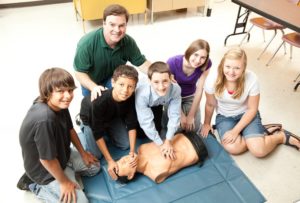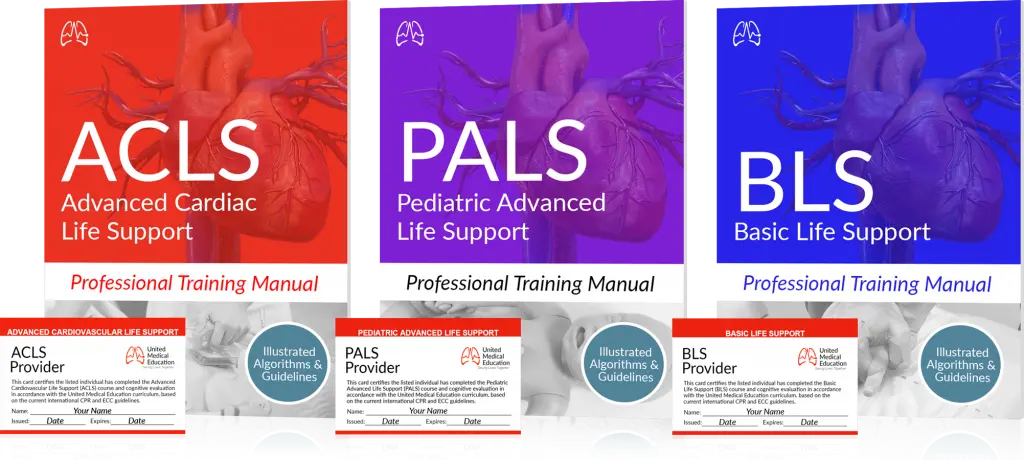Choosing a career in child care is a heart-led decision, going beyond merely enjoying being around children. It’s about committing yourself to the safety and well-being of those under your care—taking on the hats of a guardian, a guide, and sometimes, a savior. An essential part of embracing these roles fully depends on understanding and applying key health safety measures like Cardiopulmonary Resuscitation (CPR), usage of Automated External Defibrillator (AED), and First Aid skills.
CPR is a lifesaving procedure, usually performed when someone’s heartbeat or breathing stops, most commonly from a cardiac arrest. This method combines chest compressions and artificial ventilation to keep blood circulating and oxygen flowing—both vital to life. Conversely, an AED is an electronic gadget that detects irregular heart rhythms and counteracts them through a process known as defibrillation. First Aid, a broad umbrella term, covers a range of medical responses—from treating minor injuries to managing serious health emergencies. Together, the CPR AED and First Aid course form the foundation of basic life support—must-have skills every childcare provider should be equipped with, considering the unpredictable nature of accidents and the inbuilt vulnerability of children.
Grasping the Risks: The Vulnerability of Children to Accidents and Health Crises
Children, bursting with curiosity and limitless energy, often venture risks as they explore their surroundings. This natural inquisitiveness and audacity make them prone to accidents and health crises. These can range from minor scrapes, cuts, bruises, or unexpected illnesses to more severe health threats such as choking, severe allergic reactions, or even unexpected heart conditions.
As a child care provider, your role involves predicting, preventing, and responding on time and effectively to these situations. Recognizing the potential risks and formulating an action plan isn’t just recommended—it’s part of your job description.
CPR for Childcare Providers: More Than Just a Certification
In the world of childcare, CPR isn’t just another course or certification—it’s a lifeline that can be the deciding factor between life and death. The value of knowing CPR, a life-saving technique that combines chest compressions with rescue breaths, is unlimited. It helps keep vital circulation going when a child’s heart stops or when a child ceases breathing.
Scenarios where CPR is needed are not uncommon. Medical emergencies like choking, is widely known as one of the common causes of death among young children. This is because they usually put food, toys or small objects in their mouths.
For example, during my time as a substitute teacher at Happy Tots Preschool, Mrs. Lawson, a senior staff , stepped into a critical role. During snack time, little Sammy began to choke on a piece of apple. Amidst the ensuing panic, Mrs. Lawson remained calm. Trained in CPR, she was able to dislodge the apple piece, enabling Sammy to breathe again. This incident highlighted the significance of CPR training, demonstrating that this knowledge can indeed save lives.
The Role of AED in Child Care: Acting Fast in Cardiac Emergencies
An AED is a portable device that can deliver a shock to the heart to stop an abnormal rhythm and restore a normal rhythm following sudden cardiac arrest. While we often associate cardiac emergencies with adults, children are not immune to them.
Learning how to use an AED competently could be the difference between life and death for a child experiencing a cardiac emergency. Ann Marie, a seven-year-old girl in Houston,Texas suddenly collapsed at the park while playing with her friends. Her symptoms pointed to cardiac arrest. Her nanny quickly used an AED device to restore Ann Marie’s normal heart rhythm. The immediate use of the AED was a key factor in her survival and recovery.
First Aid Knowledge: Handling Minor and Major Medical Situations
First Aid goes beyond applying bandages to wounds. It involves evaluating, responding to, and managing a host of medical situations that need immediate attention. These skills also include treating wounds to prevent infection, recognizing symptoms of common illnesses, and knowing how to respond in emergencies like anaphylactic shock or seizures.
In a childcare setting, First aid skills are indispensable. By knowing how to react to a range of medical situations, you can prevent minor injuries from worsening and manage critical situations until professional medical help arrives.
Legal and Ethical Dimensions: Expectations for Childcare Providers
In many locations, not having CPR, AED and First Aid certifications as a childcare provider can limit your career prospects and even land you in legal difficulties.
For this reason, you must prepare yourself with the needed skills to save them during emergency situations. You are entrusted with a parent’s most cherished treasure—their child. The trust placed in you comes with the responsibility to ensure that you are fully equipped to provide care and protection for their child effectively.
Prioritizing Safety Through CPR, AED, and First Aid Certification
In conclusion, being a childcare provider comes with a significant level of responsibility. It is extremely important to ready yourself with all the essential knowledge and skills to spot and control any occurrence that may arise, especially those that include severe medical emergencies.
CPR, AED, and First Aid certifications aren’t just certifications. They testify to your capability to protect the lives of the children in your care. They demonstrate your commitment to your role and your dedication to ensuring the safety and well-being of your charges.
For those who have not yet obtained these certifications, consider United Medical Education. We offer comprehensive training and certification in CPR, AED, and First Aid, along with free Pediatric Advanced Life Support (PALS) training for those who create a free student account. We also offer practice exams to help prepare students for the PALS final exam.
Your journey towards becoming a certified childcare provider doesn’t just enhance your professional credentials—it could potentially save a life and offer parents the priceless reassurance of knowing their children are in safe, capable hands. As a childcare provider, there’s no greater fulfillment than being that safe pair of hands.








